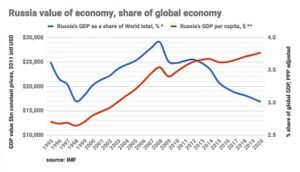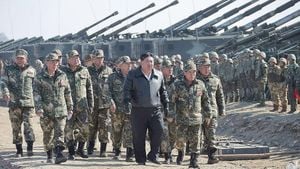This winter, UK pensioners might be seeing some extra money when they check their Winter Fuel Payment, as recent changes to the eligibility guidelines could provide some with as much as £100 more than they've received before. With the harsh realities of winter heating bills looming, the UK government has made significant adjustments to the Winter Fuel Payment scheme, aiming to provide support where it is needed most.
The updates involve new criteria, meaning not every pensioner will automatically receive this financial lifeline. Instead, eligibility will hinge on factors such as age, the year you were born, and whether you are claiming certain benefits. This shift intends to make the allocation of funds more efficient and help those who may be struggling the most with rising costs.
Under the revised rules, pensioners who are under 80 years old and were born on or before September 22, 1958, will receive £200. Those aged 80 and above, having been born before September 23, 1944, will see their payment increased to £300. This tiered system is believed to direct the most help to those likely to face higher heating costs and health issues associated with cold weather.
This financial support is particularly important as fuel costs continue to escalate, placing additional stress on households. The freezing temperatures can be unforgiving, especially for older adults who may have limited mobility or health issues, making adequate heating not just desirable but necessary.
To qualify for this increased payment, pensioners must be claiming specified benefits such as Pension Credit, Income Support, income-based Jobseeker's Allowance, or income-related Employment and Support Allowance. This change turns the Winter Fuel Payment from a universal benefit to one that's based on need, which means some may need to reassess their current benefits to determine eligibility.
According to reports, many who are newly eligible for this Winter Fuel Payment or those who haven't received it before must now apply. The qualifying period extends from September 16 to 22, 2024, during which potential recipients must meet the eligibility criteria. If someone misses this window, there is still hope; they can backdate their claims for benefits like Pension Credit through December, ensuring no one loses out on this significant financial aid.
While many pensioners will automatically receive their Winter Fuel Payment if they already claim qualifying benefits, others may need to take action. For those who are on Universal Credit or receive Tax Credits, it’s important to note these individuals must submit claims to receive the winter payment. They can verify their eligibility or inquire about payment status by contacting the Winter Fuel Payment helpline at 0800 731 0160.
To make the application process easier, Age UK has pointed out the benefits of streamlining payments for households where multiple individuals might qualify. It suggests those who are not the primary claimants of qualifying benefits will see payments automatically routed to the main claimant's account. This should help avoid confusion and mishaps, ensuring funds reach those who need them most.
Pensioners should expect their winter fuel payment to arrive sometime between mid-November and Christmas. This timeline allows individuals to plan their budgets for the frigid months, alleviating some of the financial tension around heating costs. Age UK also encourages seniors to reach out to the helpline if they haven’t received payments by then; clear communication is key during this transitional time.
Aside from the guidelines and support from the government, the changes to the Winter Fuel Payment have sparked discussions around accessibility and awareness. Advocates for older adults, including Age UK, have emphasized the need for raising awareness about these new eligibility criteria, as many may not realize they need to claim benefits like Pension Credit to qualify for financial assistance this winter. Previous automatic payments are no more for many seniors, as eligibility requirements now require additional steps.
Despite the intent behind the means-testing method, it has created some challenges. The shift is aimed to concentrate resources on those experiencing financial hardship, but it raises concerns among advocacy groups about how well these new rules are understood by potential recipients. Making these pathways clear is as important as determining the payments themselves, especially as many pensioners are from generations where benefits were simply handed out as needed.
For many, this assistance is not just about comfort; it relates directly to well-being and health. Those eligible for the increased payments may rely on this financial support to stay warm, manage illness, and maintain their quality of life over the chilly months. Ensuring every eligible pensioner can access the benefits intended for them requires community support alongside government efforts.
Overall, the government’s alterations to the Winter Fuel Payment scheme, introducing qualifying requirements, shifts the narrative from universal support to targeted assistance, all aimed at helping the most vulnerable. While this might bring more significant aid to those who truly need it, it also places the onus on pensioners to navigate changes they may not have been prepared for, making clarity and communication all the more important as the winter season approaches.



